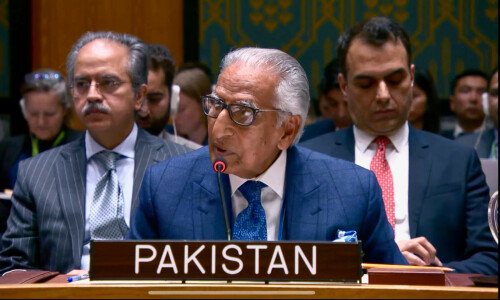World leaders, stars of the pitch and screen and dozens of billionaires were among those named and shamed in what looks to be the biggest ever leak of inside information in history.
The leaked data, covering 1977 to the end of last year, provides what the International Consortium of Investigative Journalists (ICIJ) described as a "never-before-seen view inside the offshore world".
Covering 40 years of emails, financial records and passport details, the investigation conducted by more than 100 media groups shows how some of the world's most powerful people have secreted away their money in offshore jurisdictions.
The massive leak of documents recalls Wikileaks' exploits of 2010 ─ which included the release of 500,000 secret military files on the wars in Afghanistan and Iraq and 250,000 diplomatic cables, and infuriated the US.
The vast stash of records was obtained from an anonymous source by German daily Sueddeutsche Zeitung and shared with media worldwide by the ICIJ.
The documents came from Mossack Fonseca, a Panama-based law firm with offices in more than 35 countries.
Panama Papers allegations
Below are some of the main allegations made in Sunday's release based on documents from Panama-based law firm Mossack Fonseca:
Banks, companies and aides close to Russian President Vladimir Putin secretly shuffled as much as $2 billion using offshore companies, gaining hidden influence in the country's media and automotive industries. The Kremlin has accused the ICIJ of launching a misleading “information attack”.
Iceland's Prime Minister Sigmundur David Gunnlaugsson and his wife used an offshore company, Wintris Inc., to hide millions of dollars of investments in three major banks during the financial crisis. He has denied any wrongdoing but faces a vote of no confidence this week.
Two leaders who have staked their reputations on pushing for transparency ─ Chinese President Xi Jinping and British Prime Minister David Cameron ─ have at some point had family links to offshore companies.
Several other world leaders, including Prime Minister Nawaz Sharif, the king of Saudi Arabia and the children of the president of Azerbaijan, also control offshore companies.
Mossack Fonseca worked with at least 33 people and companies blacklisted by Washington because of business links to Mexican drug lords, terrorist organisations or rogue nations, including North Korea. One supplied fuel for planes the US alleges Syria's regime used to bomb its own citizens.
The firm's customers include Ponzi schemers, drug kingpins, tax evaders and a United States (US) businessman convicted of travelling to Russia to have sex with underage orphans, who signed papers for an offshore company while in jail.
The files also identify a convicted money launderer who claimed he'd arranged a $50,000 illegal campaign contribution used to pay the Watergate burglars, 29 billionaires from Forbes' rich list, and martial arts film star Jackie Chan.
FIFA's ethics committee member Juan Pedro Damiani had business ties with three men indicted in the corruption scandal engulfing football's governing body ─ former FIFA vice president Eugenio Figueredo as well as Hugo Jinkis and his son, who are accused of paying bribes for broadcast rights in Latin America.
The world's best football player, Lionel Messi, and his father own a shell company, Mega Star Enterprises, previously unknown to Spanish investigators probing the Barcelona forward's tax affairs.
Suspended UEFA chief Michel Platini, who is serving a six-year ban from football for over a $2 million payment from FIFA president Sepp Blatter, turned to Mossack Fonseca to help him administer an offshore company created in Panama in 2007.
More than 500 banks, their subsidiaries and branches have worked with Mossack Fonseca since the 1970s to help clients manage offshore companies. UBS set up more than 1,100 and HSBC and its affiliates created more than 2,300.
'Biggest leak in history'
However, in terms of size, "the 'Panama Papers' is likely the biggest leak of inside information in history," according to ICIJ.
"It is equally likely to be one of the most explosive in the nature of its revelations," the group added.
The documents show that "banks, law firms and other offshore players often fail to follow legal requirements to make sure clients are not involved in criminal enterprises, tax dodging or political corruption", the ICIJ said on its website.
"The files show that these fixers and middlemen protect themselves and their clients by concealing suspect transactions. In some instances, they work to head off official investigations by backdating and destroying documents," it added.
"These findings show how deeply ingrained harmful practices and criminality are in the offshore world," said Gabriel Zucman, an economist at the University of California, Berkeley, cited by the consortium.
The leaked documents were reviewed by a team of more than 370 reporters from over 70 countries, according to the ICIJ.
It was not immediately clear who was the original source of the leaked documents.















































